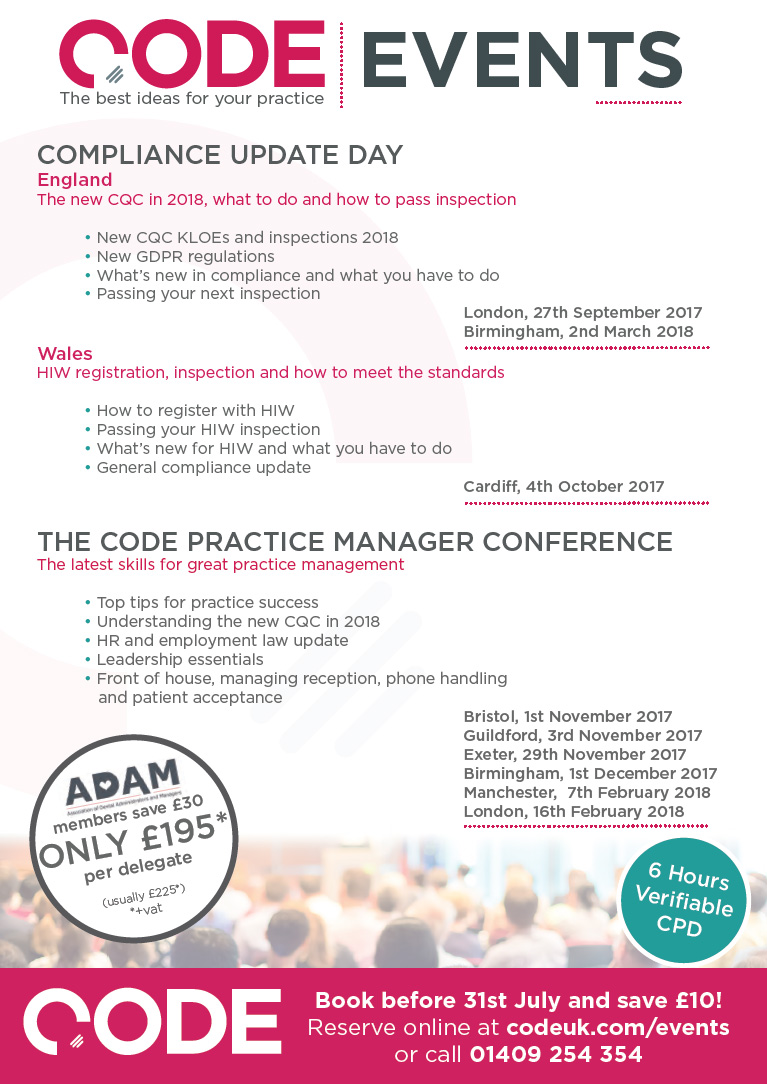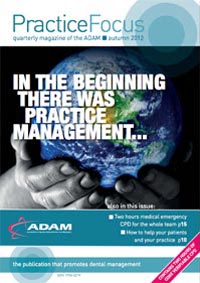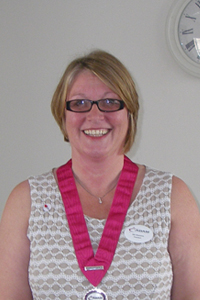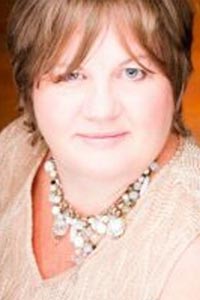Q.Does anyone know how to keep KPI records? We are a NHS (90%) and PVT (10%).
If anyone could help me I'd really really appreciate it. Actually it would be lifesaver.
A.Please find a Monthly KPI sheet that I adapt for Practices I work with. (this can be found in the template section of the website)
My suggestion is that if you are completely new to KPIs do not try and implement all at once. You are probably already doing some such as daily revenue and recalls – and I would start by systemising these. Write out why these are done, why the measurements help the Practice to grow – and start to share them with the team.
I suggest that your objective be to work towards monitoring the six KPIs that I've listed below by the end of the year. Again it's important that you and the team understand why this is being done. My view is that these KPIs if updated every four weeks provide a real understanding as to how the Practice is performing and where attention needs to be focussed. Use them as a sign post and then drill down for more information where needed.
And most importantly if your Practice is using a Practice Management Software such as Exact or R4 then the system to generate KPIs should be as automated as is possible.
1. Net Practice Growth – new patient count minus number of patients leaving = net growth
2. New Patient Value – the value of their first treatment
3. New Patient Treatment Plan Take-up – % of patients who take up proposed treatment
4. Average Patient Value – patients must visit at least once a year to be counted
5. Average Daily Yields – gross fees produced per day (regardless of the length of day) by a clinician averaged over the day the clinician actually works
6. Profit – earnings before interest, taxes, devaluation and amortisation (EBITDA) Practice gross minus practice costs (before owner draws income, personal costs and personal tax).
I am always worried that when we start talking about KPIs it begins to sound overwhelming. So always suggest that you start with those that make sense to you. Collate them weekly and then do a monthly sheet. Maybe just start with gross turnover, % recalls (dentist and hygienist), number of new patients, number of cancellations, number of FTA's. But use the sheet monthly and once you start sharing the information teams start to respond.
August 2015
PERFORMANCE MANAGEMENT
· Key Performance Indicators are a sub-set of the overall process of performance management.
· A business will have a vision underpinned by a business plan. One of the outputs of the business planning process will be how the business and every individual in it is measured, and part of this measurement system is the KPIs.
KEY PERFORMANCE INDICATORS
· As a manager you will need to be able to manage the performance of your team in terms of quality and quantity of output. The things you measure to ascertain the level of your team’s performance are called performance indicators. The main indicators of performance are called key performance indicators (KPIs).
· There are two types of performance indicators you can use – lead and lag.
· Lead performance indicators relate to lead-activities that, if they happen will lead to the desired output or end result.
· Lag performance indicators relate to outputs or results themselves.
· Most organisations are good at identifying lag indicators but not so good at identifying lead indicators.
· A lag indicator will tell you whether or not you achieved the desired output or end result AFTER the event happened.
· A lead indicator will tell you whether or not you are likely to achieve the resultBEFORE it happens, enabling a manager to take corrective action before it is too late.
LEAD Performance Indicators
· The number of hours a year staff attend off-the-job training.
· The number of formal one to one coaching sessions conducted on the job per employee per year.
· The number of staff grievances identified and addressed each six months.
· The percentage of actions implemented from those agreed during team meetings throughout the year.
· The number of times each year that performance standards are clarified, agreed and reviewed with the team.
· The number of times per year that we clarify and agree individual and team priorities.
Key performance indicators are used to indicate whether a person is performing the key activities that make up the key results areas for their job. These are the activities which, if performed, should lead to the desired result. Once you have agreed the key results areas with your staff the next step is to define the key performance indicators for each key results area.
Key results areas normally have one to three performance indicators.
There are two ways to determine key performance indicators:
1>if a person was doing this KRA well or doing it successfully what would you see happening?
2>if a person was not doing this KRA well or doing it unsuccessfully what would you see happening or what would not be happening?
Performance indicators usually meet the following criteria
· They are measurable factors against which goals may be set
· They may represent:
o ‘hard’ numbers e.g. units of production per hour
§ number of new customers per month
§ amount of idle hours
o problems to be overcome
§ interpreting changes to pricing policy
o ‘soft’ numbers or indicators of effectiveness in a subject area e.g. staff turnover, absenteeism related to staff morale
· they usually only identify what will be measured not how much e.g. rework as a percentage of total effort not 10% reduction in rework
· there are three types in descending order of use
o concurrent indicators – factors that can be identified in advance and tracked during performance against objectives
o pre-indicators – factors identified before the fact that will point to a course of action – economic trends, new competition
o terminal indicators –factors that can only be measured after the fact e.g. project completion
· the cost of identifying and monitoring them will not exceed the value of the information







 Vacant, Vice President
Vacant, Vice President











